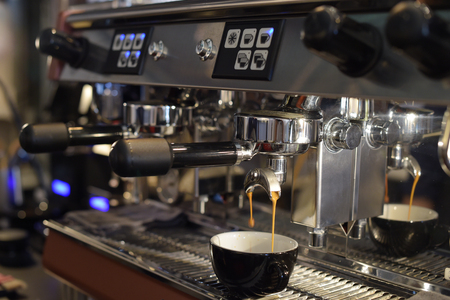Understanding UK Coffee Culture and Footfall
When considering the perfect location for your coffee shop in the UK, it is essential to first understand the unique aspects of British coffee culture. Unlike some countries where coffee consumption is purely functional, the UK scene is driven by a blend of tradition, social engagement, and an increasing appetite for speciality blends. British consumers have developed a taste for both high-street chains and independent cafés, making the landscape competitive but full of opportunity.
Local habits play a pivotal role in shaping your business strategy. For example, in bustling city centres like London or Manchester, people often grab their morning flat white on the go, whereas in smaller towns or suburban areas, customers may prefer to linger over their drinks. Understanding these nuances allows you to tailor your offerings—whether that’s quick service for commuters or comfortable seating for those who want to relax.
Footfall—the flow of potential customers passing by your premises—is another critical factor. High footfall areas such as train stations, shopping districts, and university campuses tend to offer greater exposure but come with higher rents and fierce competition. Conversely, quieter neighbourhoods may provide more affordable leases but require creative marketing to draw people in. Analysing local foot traffic patterns at different times of day can help you predict potential sales volumes and optimise your operating hours accordingly.
In summary, successful site selection for your UK coffee shop hinges on a deep appreciation of local coffee culture, customer habits, and thorough analysis of footfall data. This groundwork forms the foundation for all further decisions regarding your lease and premises.
2. Evaluating Location: High Street vs. Local Neighbourhoods
When it comes to launching a coffee shop in the UK, location is often the first—and arguably most critical—decision you’ll make. The choice between a bustling high street and a quieter local neighbourhood can shape your customer base, overheads, and even your day-to-day operations. Let’s break down the core considerations using a straightforward comparison:
| High Street | Local Neighbourhood | |
|---|---|---|
| Footfall | High volumes of passing trade; good for impulse purchases and visibility. | Lower but more predictable footfall; potential for loyal, repeat customers. |
| Rental Costs | Typically higher due to demand and centrality. | Generally more affordable, with the possibility of longer-term leases. |
| Competition | Often surrounded by other coffee shops and chains; need to stand out. | Less direct competition, especially from large chains; opportunity to become a community staple. |
| Opening Hours | May require extended hours to capture commuter trade and evening business. | More flexibility; can tailor hours to local habits and needs. |
| Customer Demographics | Diverse—shoppers, commuters, tourists; may be less connected to locality. | Mainly residents; scope for building lasting relationships and local reputation. |
The high street offers immediate exposure and the potential for fast-paced sales but usually comes at a premium price—both financially and in terms of competition. Alternatively, setting up shop in a residential area allows for deeper community engagement and possibly reduced costs but may require more patience as you build up regular trade. In my own experience, it’s wise to observe local habits: spend time in both environments at different times of day, chat with nearby business owners, and consider how your concept fits into each context. Ultimately, the “right” spot depends on your vision—whether you favour volume or community connection.
![]()
3. Navigating UK Leasing Agreements
Understanding the ins and outs of leasing agreements is vital when setting up your coffee shop in the UK. There are several lease types commonly encountered, each with its own implications for flexibility, cost, and long-term stability.
Common Lease Types
Most coffee shop operators will encounter either a Full Repairing and Insuring (FRI) Lease or a Short-Term Licence. The FRI lease places responsibility for repairs and insurance on the tenant, making it crucial to inspect the premises thoroughly before signing. Short-term licences offer greater flexibility but often come at a premium and might not provide the security needed for business growth.
Key Terms to Watch
Pay close attention to terms such as rent review clauses, break clauses, service charges, and alienation provisions. Rent reviews typically occur every three to five years and can significantly affect your bottom line. Break clauses allow you or the landlord to end the lease early under agreed conditions—these can be a lifeline if circumstances change. Service charges, especially in multi-tenant buildings, may cover shared maintenance but can fluctuate unpredictably. Alienation provisions determine your ability to sublet or assign the lease, which could impact your exit strategy.
Negotiation Tips
Always negotiate from an informed position. Ask for a rent-free period to help with fit-out costs, clarify who is responsible for internal and external repairs, and ensure that any break clause terms are fair and workable. Engaging a UK-based solicitor with commercial property experience is strongly advised—they will help you identify hidden pitfalls unique to British leases.
Cultural Considerations
British landlords value reliability and clear communication. Demonstrate your commitment by providing robust business plans and references. Don’t be afraid to ask detailed questions; thorough due diligence is both expected and respected in UK property dealings.
Selecting the right lease sets the foundation for your coffee shop’s success, so take time to understand every clause before committing. This careful approach can save you significant costs—and stress—in the long run.
4. Assessing Your Premises: Essential Facilities and Space Planning
When it comes to establishing a successful coffee shop in the UK, thoroughly assessing potential premises is as crucial as selecting the right location or negotiating favourable lease terms. The space you choose will directly impact your daily operations, customer experience, and compliance with British regulations. Below, we outline the fundamental aspects every UK coffee shop owner should consider during their search.
Utilities: Ensuring Reliable Services
No coffee shop can function without dependable utilities. Before committing to any site, confirm that the following essential services are available and up to standard:
| Utility | What to Check | UK Considerations |
|---|---|---|
| Electricity | Sufficient supply for commercial equipment (e.g., espresso machines) | Three-phase power often preferred; check fuse ratings |
| Water | Potable water with good pressure; drainage systems | Separate meters may be required; investigate historical leaks |
| Gas | If applicable for kitchen/cooking appliances | Verify safety certificates and compliance with Gas Safe regulations |
| Internet/Phone Line | Reliable broadband for POS systems and Wi-Fi for customers | Check coverage and speed from local providers |
Accessibility: Welcoming All Customers
The Equality Act 2010 mandates that businesses provide reasonable access for everyone, including those with disabilities. When evaluating premises, look for:
- Step-free entrances: Essential for wheelchair users and prams.
- Wide doorways and corridors: Facilitate smooth movement inside the shop.
- Accessible toilets: Ideally included or space allocated for future installation.
- Clear signage: Important for those with visual impairments or language barriers.
- Pavement access: Ensure there are no obstructions outside your entrance.
Layout: Optimising Space for Function and Atmosphere
A smartly planned layout not only enhances efficiency but also influences customer satisfaction. Consider these UK-specific factors when planning your internal space:
- Counter placement: Should be visible upon entry but not obstructing the flow.
- Seating arrangements: Balance between cosy corners and open communal tables; British customers often appreciate options for both privacy and social interaction.
- Circulation space: Allow sufficient room for queuing, especially during busy periods (e.g., morning rush hours).
- Storage: Adequate secure storage for stock, cleaning supplies, and personal belongings is vital due to typically compact UK shop sizes.
- Kitchens/Prep areas: Must meet Environmental Health standards; factor in extraction systems if cooking hot food.
- Noisy neighbours: Check whether neighbouring businesses could affect your ambience (e.g., nightclubs or late-opening takeaways).
Pitfalls to Avoid in Premises Selection
Avoid choosing a site based solely on aesthetics or initial rent price. Overlooking critical features like poor ventilation, lack of natural light, or inadequate waste disposal can lead to costly retrofits later on. Always conduct a thorough site inspection—ideally with an architect or fit-out specialist experienced in UK hospitality spaces—before signing any agreements.
5. Local Regulations and Planning Permissions
When selecting a location for your UK coffee shop, understanding local regulations and planning permissions is crucial. The process of obtaining planning permission can be complex, especially if your premises are in a listed building or within a conservation area. In the UK, you generally need to apply for ‘change of use’ consent if you are converting a site from retail (Class E) to a café or restaurant setting. This is handled through your local council’s planning department. Be aware that local councils may have specific restrictions on operating hours, signage, and waste disposal, which can impact your day-to-day operations.
If your chosen premises is a listed building, additional permissions will be required before making any alterations, both internal and external. Listed status aims to preserve the architectural or historical interest of a property, so even minor changes can trigger a lengthy approval process. It’s essential to consult with your local authority’s conservation officer early in the process to clarify what works are permitted. Additionally, some areas enforce Article 4 Directions, restricting automatic permitted development rights—meaning you might need planning permission for things like outdoor seating or changes to shopfronts.
In summary, navigating planning permissions in the UK involves liaising with your local council, understanding listed building considerations, and being mindful of any unique community or conservation requirements. Proper due diligence at this stage will help ensure your coffee shop launch goes smoothly and remains compliant with all relevant legislation.
6. Community Integration and Building Local Partnerships
Engaging meaningfully with your local community is an essential step in ensuring the long-term success of your UK coffee shop. Once you’ve secured the ideal location, lease, and premises, it’s time to focus on strategies that embed your business into the fabric of the neighbourhood.
Get to Know Your Neighbours
Start by introducing yourself to neighbouring businesses and residents. A simple gesture, like offering free samples or hosting a soft launch event, can break the ice. Establishing these early relationships not only builds goodwill but also opens doors for future collaborations and referrals.
Partner with Local Suppliers and Artisans
Sourcing ingredients, baked goods, or even artwork from local producers demonstrates commitment to the area and can set your shop apart. Customers in the UK increasingly value transparency and sustainability, so highlighting these partnerships on your menu or website adds credibility and appeal.
Join Community Initiatives
Participate in local events such as farmers’ markets, charity fundraisers, or town fairs. You could sponsor a local football team or offer space for community meetings. These activities enhance visibility and show that your coffee shop is invested in more than just profit.
Leverage Social Media for Local Engagement
Utilise platforms like Instagram and Facebook to spotlight collaborations with local partners, promote neighbourhood events, and share stories about your journey. Using region-specific hashtags and engaging with local influencers can further amplify your reach within the community.
Ultimately, thriving as a UK coffee shop means becoming a valued hub in your chosen location. By building strong ties and supporting fellow locals, you foster loyalty that goes beyond a good cup of coffee—helping your business weather challenges and enjoy sustained growth.


